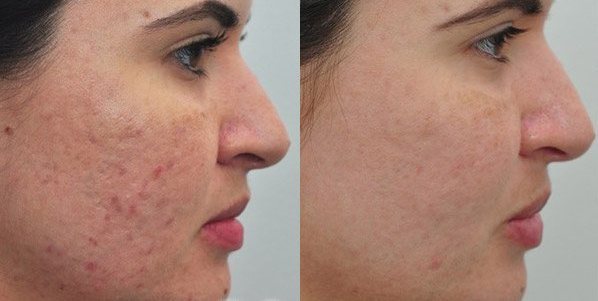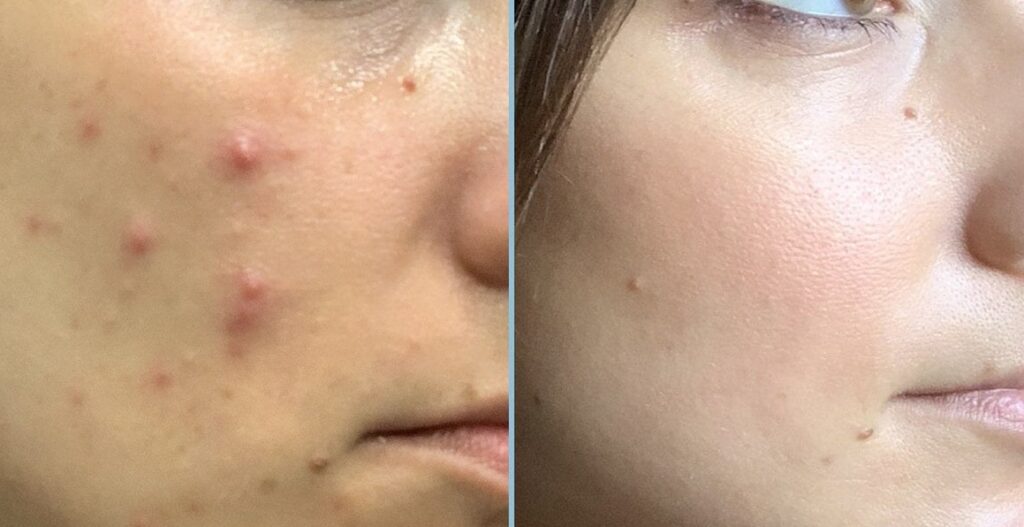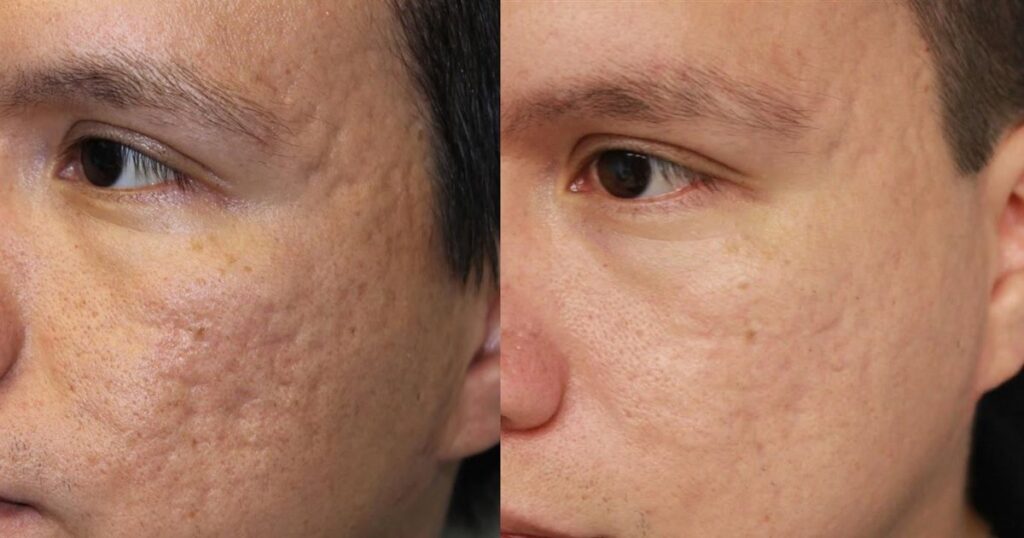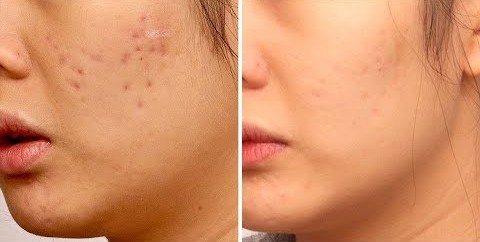Acne treatment in Istanbul – Turkey: Dealing with acne can be frustrating, but you’re not alone in the journey to clearer skin. Whether it’s stubborn breakouts, painful cysts, or lingering scars, the right acne treatment can make a world of difference. With options ranging from gentle, skin-friendly creams to advanced dermatological procedures, there’s a solution tailored to your unique needs. Imagine waking up with smoother, clearer skin, feeling confident in your own complexion. Our personalized approach focuses on understanding your skin type, targeting the root cause of your acne, and giving you real, lasting results. Your path to healthy, glowing skin starts here!
Acne Treatment: Quick Overview
| Category | Details |
|---|---|
| Definition | Acne is a common skin condition that occurs when hair follicles become clogged with oil and dead skin cells, leading to pimples, blackheads, whiteheads, or cysts. |
| Treatment Options | Topical creams (e.g., benzoyl peroxide, salicylic acid), oral medications (antibiotics, hormonal therapy), in-office procedures (chemical peels, laser therapy), lifestyle changes. |
| Expected Results | Reduction in breakouts, improved skin texture, decreased inflammation, fading of acne scars over time. |
| Duration of Results | Results vary; mild acne may clear within weeks, while severe acne may take several months of treatment for noticeable improvement. |
| Recovery Time | Topical treatments: minimal to no downtime. In-office treatments: mild redness or irritation for 1-7 days depending on the procedure. |
| Side Effects | Dryness, redness, irritation, peeling (from topical treatments), sensitivity to sunlight, rare scarring from procedures. |
| Maintenance | Continued use of prescribed skin care routines, lifestyle modifications, and regular dermatology checkups. |
| Prevention Tips | Gentle cleansing, avoid excessive touching of face, balanced diet, managing stress, and avoiding oily cosmetics. |
Acne: What is it
Acne is a common skin condition that affects people of all ages, often making its appearance during puberty due to hormonal changes. It occurs when hair follicles become clogged with oil, dead skin cells, and bacteria, leading to various types of blemishes like pimples, blackheads, and cysts. While it can be frustrating and sometimes painful, it’s essential to remember that you’re not alone—millions experience similar struggles. Understanding acne is the first step toward finding effective treatments and managing it. With the right care and support, achieving clear, healthy skin is possible, helping you feel more confident in your appearance.
Acne Causes
- Hormonal Changes: Fluctuations in hormones, particularly during puberty, menstruation, or pregnancy, can trigger excess oil production.
- Excess Oil Production: Overactive sebaceous glands produce too much sebum, clogging pores.
- Clogged Pores: Dead skin cells and oil block hair follicles, creating acne.
- Bacterial Growth: Propionibacterium acnes bacteria thrive in clogged pores, causing inflammation.
- Diet & Lifestyle: High-sugar diets, dairy, stress, and lack of sleep can worsen acne.
- Medications: Certain medications like steroids or birth control pills may contribute to acne.
- Genetics: A family history of acne increases your chances of developing it.
- Cosmetic Products: Heavy or comedogenic products can block pores and lead to breakouts.
Types of Acne
| Type of Acne | Description | Appearance | Severity | Scarring Risk |
|---|---|---|---|---|
| Whiteheads (Closed Comedones) | Small bumps that form when a pore is clogged with oil and dead skin but remains closed at the surface. | Small, flesh-colored or white bumps. | Mild | Low |
| Blackheads (Open Comedones) | Pores clogged with oil and dead skin that stay open, causing the surface to darken due to oxidation. | Small, dark spots on the surface of the skin. | Mild | Low |
| Papules | Inflamed or irritated hair follicles without pus. Occurs when pores are clogged, and bacteria cause inflammation. | Small, red, raised, and tender bumps. | Moderate | Medium |
| Pustules | Pimples filled with pus, often resulting from infection. | Red pimples with white or yellow centers, containing pus. | Moderate | Medium |
| Nodules | Large, painful lumps deep under the skin caused by clogged, infected pores. | Hard, deep, and painful bumps beneath the skin’s surface. | Severe | High |
| Cystic Acne | The most severe form of acne, with large, painful, pus-filled cysts deep under the skin. Often associated with hormonal imbalances. | Large, red, painful, pus-filled cysts deep beneath the skin, often leading to permanent scarring. | Severe | Very High |
Acne Treatment Options
| Treatment | Suitable for Acne Types | Expected Results | Sessions Required | Pros | Cons |
|---|---|---|---|---|---|
| Filler | Scarring (especially for cystic acne) | Improved skin texture and volume in areas with scarring | 1-3 sessions (depending on severity) | Quick procedure with immediate results | Temporary results; may require maintenance |
| Chemical Peels | Mild to moderate acne, post-acne scars | Smoother skin texture, reduction in active acne | 4-6 sessions (every 3-4 weeks) | Non-invasive; helps with pigmentation and texture | Possible redness and peeling; not suitable for very sensitive skin |
| Dermabrasion | Scarring, especially from severe acne | Smoother skin, reduced appearance of scars | 1-3 sessions (spacing varies) | Effective for deep scars; promotes new skin growth | Longer recovery time; potential for redness and swelling |
| Laser Treatment | All acne types, especially cystic and nodular | Reduction in active acne, improvement in scars | 3-6 sessions (4-6 weeks apart) | Targeted treatment; minimal downtime | May cause temporary redness; cost can be high |
| Surgical Excision | Severe cystic acne or nodules | Immediate removal of cysts, prevention of recurrence | 1 session (for cyst removal) | Quick results; effective for large cysts | Scarring risk; requires proper aftercare |
Acne treatment: What to Expect
Before
Before undergoing acne treatment, it’s important to have a clear understanding of the process and set realistic expectations. Your journey typically begins with a consultation, where a dermatologist evaluates your skin type, acne severity, and any underlying factors contributing to your condition. They may recommend a specific treatment plan tailored to your needs. You might feel a mix of excitement and apprehension as you prepare for the procedure, but remember that this is a positive step toward achieving clearer skin. It’s also a good idea to ask any questions you may have and discuss your skincare routine, as this can play a crucial role in your treatment’s effectiveness.
During
During the treatment, the experience can vary depending on the method chosen. For instance, chemical peels might involve a tingling sensation as the solution is applied, while laser treatments often feel like a gentle snapping against the skin. If you’re receiving fillers or undergoing dermabrasion, there may be some discomfort, but most procedures are manageable. Your healthcare provider will take care to ensure you’re comfortable throughout the session. Regardless of the treatment type, it’s essential to communicate with your dermatologist about any discomfort you feel so they can make adjustments if needed.
Upon
After the treatment, your skin may require some time to heal, depending on the procedure. You might experience redness, swelling, or peeling, particularly with chemical peels or dermabrasion. These effects are usually temporary and will subside within a few days. As your skin heals, you’ll start to notice improvements, such as reduced breakouts and smoother texture. It’s important to follow your aftercare instructions diligently, including using gentle products and protecting your skin from the sun. With patience and proper care, you’ll be on your way to enjoying healthier, clearer skin.
Aftercare Instructions
- Keep the Area Clean: Gently cleanse your skin with a mild, non-comedogenic cleanser twice daily.
- Avoid Picking or Scratching to prevent irritation and scarring.
- Moisturize: Use a gentle, oil-free moisturizer to keep your skin hydrated.
- Sun Protection: Apply a broad-spectrum sunscreen daily to protect healing skin from UV damage.
- Limit Makeup for a few days post-treatment to allow the skin to breathe and heal.
- Avoid Exfoliating Products at least a week to prevent irritation.
- Stay Hydrated: Drink plenty of water to support skin healing from the inside out.
- Follow Doctor’s Instructions.
- Be Patient: Allow time for your skin to heal and show improvements; results may take several weeks.
Results
After acne treatment, you can expect noticeable improvements in your skin within a few weeks. Initially, there may be some redness or peeling, but as your skin heals, clearer and smoother areas will begin to emerge. Depending on the treatment type, results can last from several months to years, particularly with ongoing maintenance and a good skincare routine. For those with severe scarring, multiple sessions may be required for optimal results. Over time, many patients experience a significant reduction in breakouts and an overall improvement in skin texture, boosting confidence and enhancing the appearance of their complexion.
Before After Acne Treatment




FAQ: Acne Treatment
What is the average cost of acne treatment in Istanbul?
At Signature Aesthetica, costs vary depending on the treatment type and start at 100 euro.
What should I do before my acne treatment?
Cleanse your skin gently, avoid using strong exfoliants or harsh products, and inform your dermatologist of any medications or skincare products you’re using.
Are there any common side effects of acne treatment?
Side effects may include redness, peeling, dryness, swelling, and sensitivity. More severe reactions are rare but can occur.
How long do the results of acne treatment last?
Results can last several months to years, depending on the treatment type and your skincare routine.
Are there any alternatives to traditional acne treatment?
Alternatives include natural remedies, dietary changes, and over-the-counter products containing ingredients like salicylic acid or benzoyl peroxide.
How do I choose the right acne treatment for my skin type?
Consult with a dermatologist who can assess your skin and recommend the most effective treatments tailored to your needs.
Is it safe to combine different acne treatment?
Yes, but always consult with your dermatologist to avoid potential interactions and ensure a safe combination.
What are some other names for acne treatment?
Other terms include acne therapy, acne management, or acne skin care.
Is it possible to prevent acne from returning after treatment?
While complete prevention isn’t guaranteed, maintaining a consistent skincare routine, managing stress, and avoiding known triggers can help reduce the likelihood of future breakouts.
Book an appointment for Acne treatment in Istanbul
Booking an appointment for acne treatment in Istanbul, Turkey, has never been easier with Signature Aesthetica. We are dedicated to selecting only the best and highest-rated doctors to ensure that you receive top-notch care.
Our process begins with a thorough evaluation of the leading cosmetic surgeons in Istanbul. We meticulously assess their credentials, success rates, and patient reviews.
Next, we focus on the most attractive and competitive prices. We understand that affordability is crucial, and we strive to offer options that fit various budgets without compromising on quality.
It’s difficult enough to find time for yourself, just give us a phone or a brief message, and we’ll work out a time that suits you, for before after results here our Instagram.



